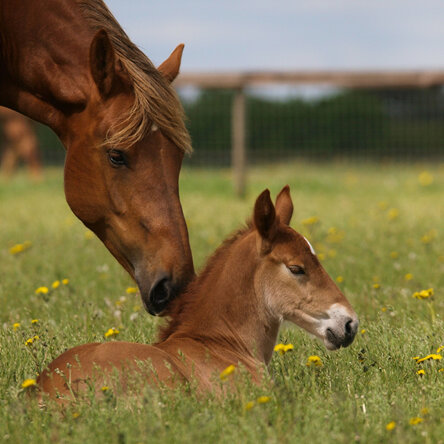Franklin Vets
Franklin Vets - excellence in veterinary care for dairy, farming, lifestyle, equine and household pets. BESTPRACTICE ACCREDITED NZ.
Your account is powered by Storbie. To edit your profile visit my.storbie.com
Your account is powered by Storbie. To edit your profile visit my.storbie.com

Your foal should have had its hooves examined and trimmed from 10-14 days after birth. This is especially important if there are any abnormalities present. Any angular limb deformities should have been examined by your vet at this stage too so that corrective action could be taken. Now they will have regular trimming with their mum, as well as making sure they have healthy, well-shaped hooves it is also much easier to train a young foal than an older stronger one!
Your foal should have its first parasite drench at 8 weeks of age. This is to treat ascarids (large roundworms) which the foals are infected with very early in life. These worms can grow up to 40cm in length and large burdens can cause blockages in the gut. Usually, they are responsible for ill thrift – poor weight gain, rough coat, and pot belly. Horses develop resistance to ascarids at 2-4 years of age. Foals should be wormed every 2 months until they are 9 months of age, after which faecal egg counts are used to determine the worming schedule. It is best to discuss with your veterinarian which wormers to use due to resistance.
Your foal should be vaccinated from 3 months of age for Tetanus, Strangles and Herpes virus. All are relatively common infections that can cause severe, or in the case of tetanus, fatal disease. The vaccinations will give very good protection if all boosters are given.
Once a horse is infected with the Herpes virus, which causes respiratory disease, the virus stays in the body as a latent or dormant infection which then resurfaces at times of stress. So the best way to prevent this is vaccination as early as possible.
Dr Catherine Pemberton BVSc, Equine Vet at Pukekohe
Franklin Vets - excellence in veterinary care for dairy, farming, lifestyle, equine and household pets. BESTPRACTICE ACCREDITED NZ.



